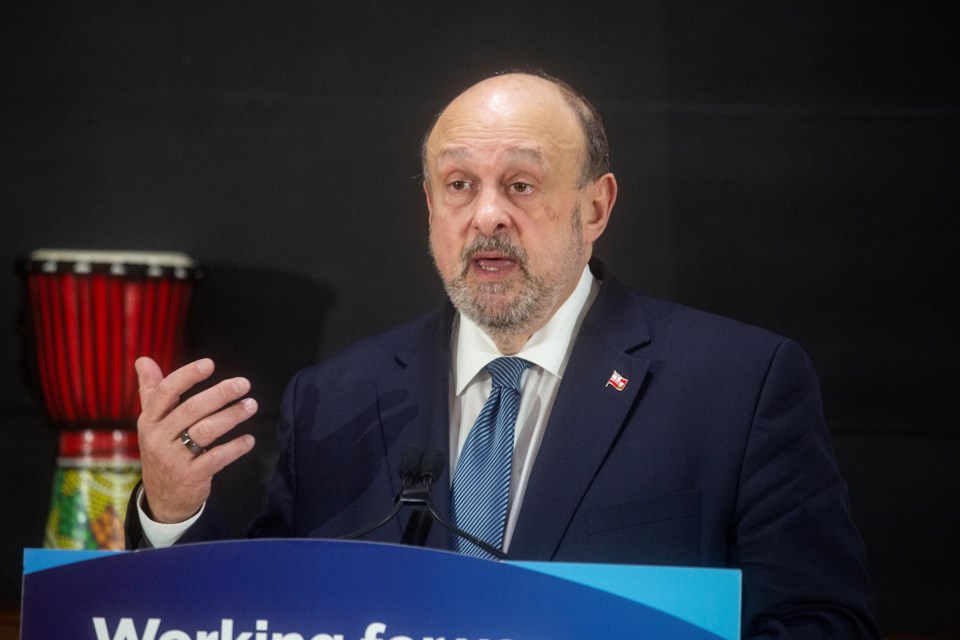A Sudbury-area member of parliament for the NDP stood up in the Ontario Legislature on Thursday, echoing the concerns of Sault Ste. Marie Mayor Matthew Shoemaker regarding the opioid toxicity death rate in northern Ontario, where the Sault is worst in the province.
"Throughout northern Ontario, opioid deaths are sky high," said Nickel Belt MPP France Gélinas to the legislature on Thursday. "Thunder Bay and Timmins will lose their consumption and treatment sites. In Sudbury, where this government refused to fund the consumption and treatment site, overdose deaths continue to rise non-stop."
She continued: "I will be attending a funeral on Saturday, one more of my friends died of an overdose. Every single day, seven people in Ontario die from this opioid overdose epidemic."
In a response, associate minister of Mental Health and Addictions Michael Tibollo noted investments are being made by the Ontario PC government to battle the opioid crisis.
"The government has and continues to make investments in ensuring that we build a system of treatment and recovery, not just in southern Ontario but in northern Ontario as well. In fact, the Addictions Recovery Fund opened—54% of the funding went to northern Ontario," said Tibollo.
That $90 million fund was launched by the Ontario PC government in 2022.
Tibollo said northern Ontario's share of the funding went toward opening 280 treatment beds in cities like Thunder Bay, Sudbury, Timmins and Sioux Lookout.
"It has created 10,000 treatment spots for individuals that didn’t exist before.," he said.
The associate minister said additional investment is coming when the province's Homelessness and Addiction Recovery Treatment (HART) Hubs open in 19 cities in the near future. The program will add as many as 375 highly supportive housing units across the province, as well as addiction recovery and treatment beds.
In an interview by phone, Gélinas was asked if 19 HART Hub locations will be enough to service the Ontarians in need.
"Absolutely not," said Gélinas. "Rumor tells me that there are hundreds of municipalities that have asked for the hubs. Nine will go through sites that are forced to close and the other 10 will be for the other 300 municipalities that have asked for a hub."
The limited number of HART Hubs that will open could leave Sault Ste. Marie or other communities in a similar position without support. Gélinas noted Shoemaker's letter-writing campaign to the Ministry of Health in favour of a hub being located in the Sault.
"Your mayor is doing the right thing by encouraging people to get involved, to write, encouraging to have this dialogue," said Gélinas.
Statistics released Monday by the Office of the Chief Coroner show Sault Ste. Marie tops the list for worst opioid toxicity death rate for the first two quarters of 2024, a dramatic increase from its ranking as sixth-worst in the province for Q3 2023.
Gélinas asked the government about Shoemaker's comments about the Sault's death rate worsening while stats improved for communities that had consumption and treatment sites, sometimes referred to as supervised consumption sites.
In a response, Deputy Government House Leader Anthony Leardi said his government has heard the message loud and clear from the mothers and fathers of the province of Ontario.
"They are tired of stepping over needles when they walk their children to school. They are tired of seeing their children exposed to drug activity. They are tired of the violence that the drug injection sites attract. They are tired of the drug activity and trafficking that the drug injection sites attract," said Leardi.
Gélinas told SooToday there is still a lot of discrimination surrounding mental health and addiction.
"But once it affects you, when it affects somebody you know, you realize that they are sick," said Gélinas. "You don't choose to have cancer and you don't choose to have a mental illness either. Those people need care, not discrimination."
